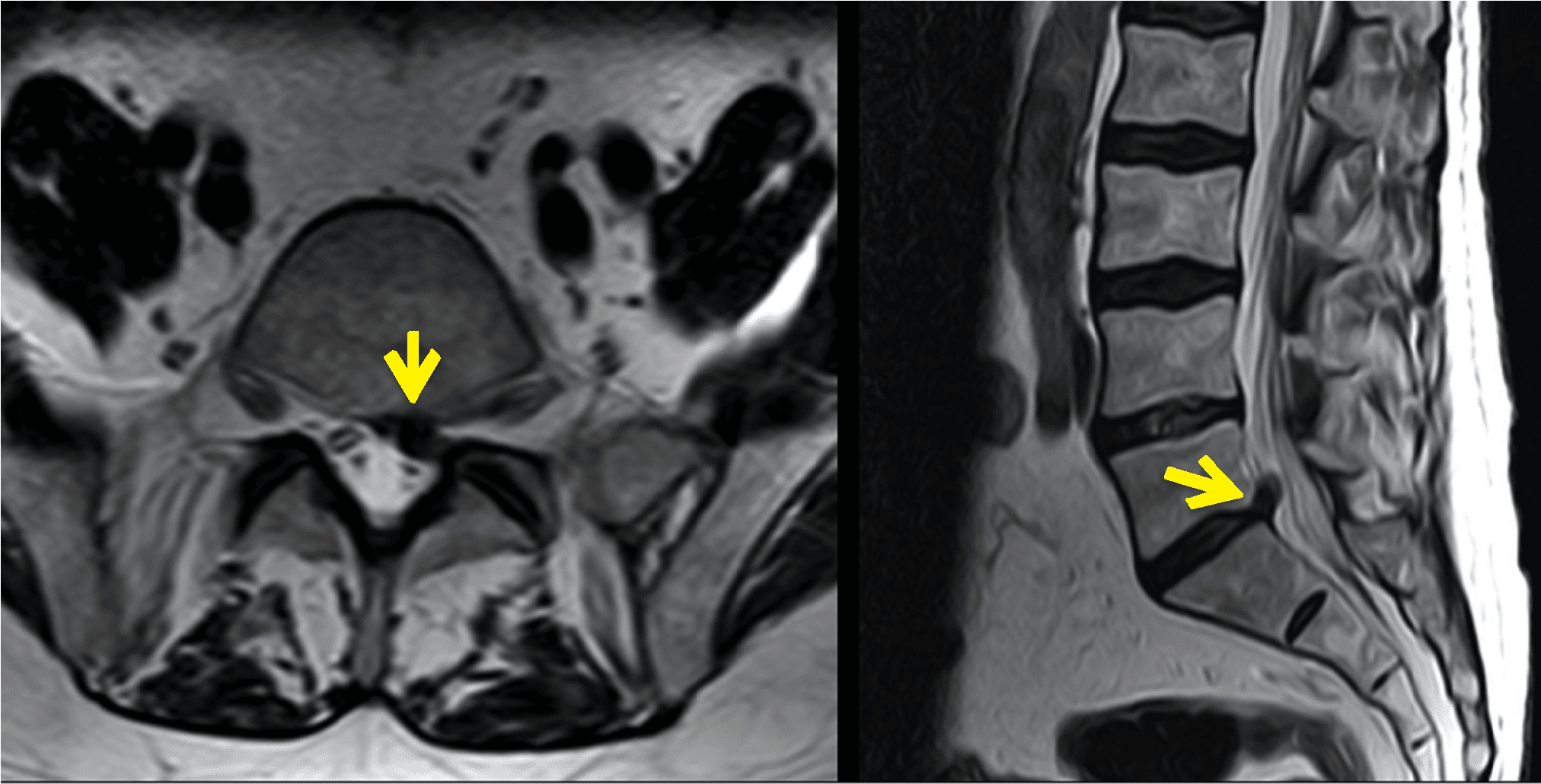The thecal sac is a protective covering that surrounds your spinal cord and contains cerebrospinal fluid (CSF), which helps to cushion the nerves. The thecal sac is contained within the spinal canal, the bony channel that runs down the center of your vertebrae (the bones of your spine).
Effacement of the thecal sac refers to a situation where the thecal sac is being compressed or “flattened” against the spinal cord. This compression can occur for several reasons, and is often due to a protruding or herniated disc, spinal stenosis (a narrowing of the spinal canal), or a growth such as a tumor.
This compression can cause various symptoms depending on its severity and location. Mild effacement might not cause any symptoms at all, while more severe or prolonged compression can lead to symptoms such as:
- Back or neck pain
- Sciatica (pain that radiates from your lower back down one leg)
- Weakness or numbness in your limbs
- Problems with balance and coordination
- In severe cases, loss of bowel or bladder control
Effacement of the thecal sac is typically discovered during imaging tests such as an MRI or CT scan. If you are experiencing symptoms suggestive of spinal cord compression, it’s important to consult with your doctor. They can advise you about the best treatment options based on the cause and severity of the compression. This could range from pain relief medication, physiotherapy, to surgery in severe cases. The aim of treatment is to relieve the compression, reduce pain and other symptoms, and prevent any permanent damage to the spinal cord.
Also known as thecal sac indentation.
